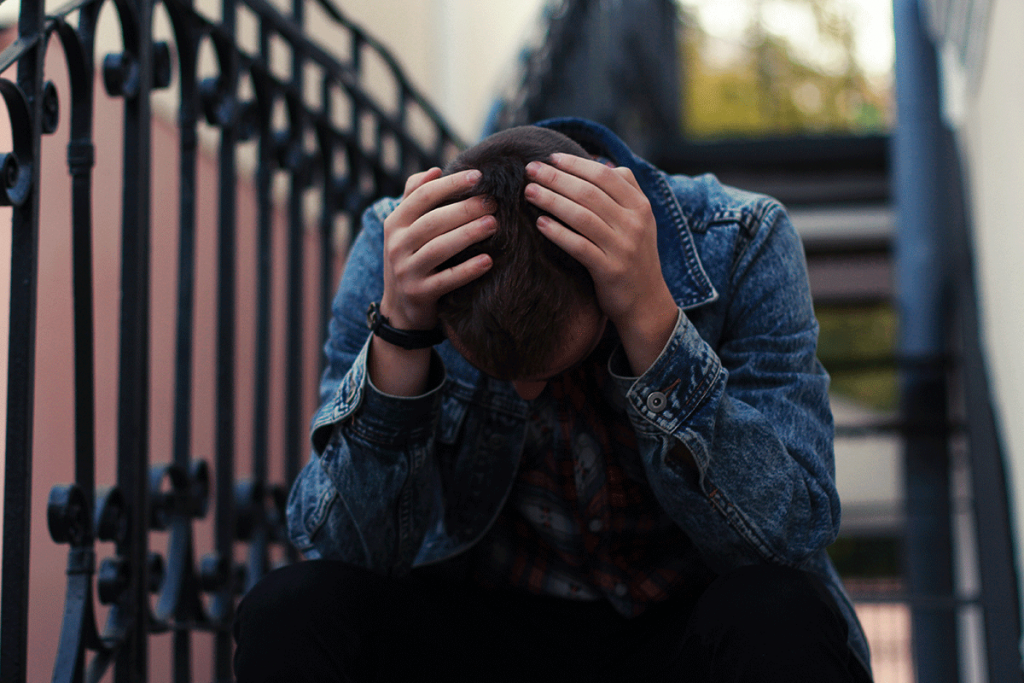You might be familiar with bipolar disorder. You might know that it brings on periods of ups and downs, and a common treatment for bipolar is a medication called lithium. You might also have seen some common misperceptions about bipolar disorder like mood swings are constant or totally out of the blue. Adolescents with bipolar disorder might show symptoms a little differently than adults, but treatment can still be effective and should be started early, so they know how to manage their mental health in the future.
What Bipolar Disorder Is
Bipolar disorder is a mood disorder, which means it affects how someone feels and the mood they display. Their energy, behaviors, and emotions can all be affected. Mood disorders typically cause people to feel disconnected from the circumstances in their life. For example, someone with depression or going through a depressive episode may have a hard time finding energy or joy even if things are going well. Bipolar disorder does include depressive episodes, but it also includes something called mania. This is a period of elevated energy, which can sometimes lead to risky behaviors.
In adolescents, symptoms of bipolar disorder might be a little different from those in adults.
Manic Episodes
- Intense irritability or agitation
- Grandiosity and inflated self-esteem
- Racing thoughts and pressured speech
- Decreased need for sleep
- Increased energy and hyperactivity
- Engaging in risky behaviors like substance abuse, reckless driving, or unprotected sex
Depressive Episodes
- Persistent feelings of sadness, hopelessness, or emptiness
- Loss of interest in activities once enjoyed
- Changes in appetite and sleep patterns
- Fatigue and loss of energy
- Difficulty concentrating or making decisions
- Thoughts of self-harm or suicide
There are three main types of bipolar disorder: bipolar I, bipolar II, and cyclothymia. Each of these diagnoses depends on the frequency and severity of symptoms.
Myths About Adolescent Bipolar Disorder
Millions of people in the U.S. live with bipolar disorder—it’s not an extremely rare condition that only affects certain people with bipolar disorder in their families. What other myths have you heard about bipolar disorder?
- Bipolar disorder is just mood swings – In truth, manic and depressive episodes last longer than moments. Some people can go through periods of depression for months, while others may experience mania for a few days to a couple of months. These episodes also have a significant impact on daily life and relationships.
- Medication is the only treatment option – While medication may be an important part of managing bipolar disorder, it’s not the only treatment available. Therapy, lifestyle changes, and support groups can also play a crucial role in managing symptoms.
- People with bipolar disorder are always either manic or depressed – Although bipolar disorder is characterized by episodes of mania and depression, there can also be periods of stability in between. During these times, the person may feel more like themselves and have less intense symptoms.
If you notice that your teen is struggling with their mental health, talk to them about it. Professional support and early intervention can help them learn how to manage their mental health. And, if they do have bipolar disorder, this is a valuable skill to learn as they transition into adulthood.
How You Can Support Your Teen
Connecting and communicating with your teen is the most important thing you can do when they are having a hard time with their mental health. If a doctor diagnoses them with bipolar disorder, take time to learn more about the condition and its treatment options.
Let them know that they are not alone and that you will support them through this journey. Encourage healthy habits and keep notes about any mental health appointments you attend with them, as well as any behaviors at home that may be concerning. You’ll be able to be more engaged with their treatment if you have a better understanding of what they’re going through.
You don’t have to do it on your own, either. Help is available, and treatment might be closer than you think.
Reach Out for Help Today
Family First provides bipolar disorder treatment for teens 12-18 in South Florida. We provide talk therapy, medication management, academic support, and experiential therapies for adolescents who need help managing their mental health. Our team also works closely with parents and families while teens are in treatment to help them build a more supportive home environment while preparing for aftercare.
Call 888.904.5947 or contact us online now.

